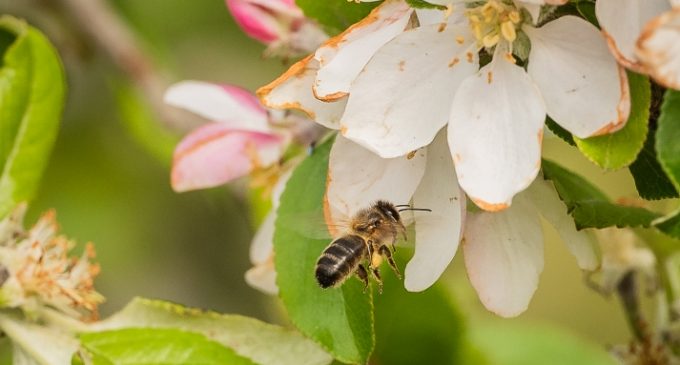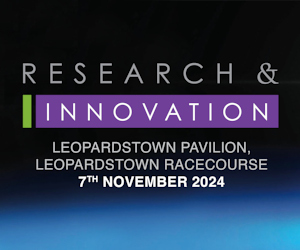New Partnership to Save Bees and Increase Global Crop Production

Inmarsat, the world leader in global, mobile satellite communications has announced a new partnership with ApisProtect, an Irish agritech innovator, which deploys the Internet of Things (IoT) technology to monitor the health of honey bees. This collaboration aims to develop a globally scalable IoT solution for connected apiaries, to help stem the significant decline of bee populations and increase crop production worldwide.
Contributing an estimated $174 billion to the global agri-food industry annually, honey bees play an essential role in global food production. One third of all food that is consumed worldwide depends on pollinators, such as bees, and there are 91 million managed beehives worldwide. However, U.S. commercial beekeepers alone have experienced declines of 38 percent colonies in 2015-2016.
ApisProtect has developed a solution which reduces colony loss, improves the yield of commercial beekeeping and makes apiaries much easier to manage. Inmarsat is supporting ApisProtect as the global connectivity partner, ensuring the solution can be deployed anywhere on the planet. ApisProtect brings the power of advanced sensors and machine learning technology into the hive to deliver a 24/7 early warning system so beekeepers can give at-risk hives immediate attention and improve bee health, giving beekeepers actionable insights and alerts to help prevent losses and increase colony productivity.
The solution consists of an ApisMonitor Unit which sits in a beehive and is connected to an analytics platform optimized for measuring honey bee health via Inmarsat’s Long Range Wide Area Network (LoRaWAN) and Broadband Global Area Network (BGAN) connectivity. This in turn feeds into a machine learning algorithm for early detection and mitigation of bee health issues.
Inmarsat and ApisProtect are making a joint investment in the next phase of the project to demonstrate effectiveness of the data collection and analysis across diverse climates and bee species, spanning Ireland, UK, EU, USA and South Africa ahead of a commercial launch in late 2019. The project includes working with some of the world’s foremost bee researchers and organizations and is already monitoring the health of over 10 million honey bees in hives across Europe, South Africa and North America.
Dr Fiona Edwards Murphy, Co-founder and CEO of ApisProtect, discussed the importance of the project: “Without a healthy bee population there could be severe food shortages across the world, which is why we have developed an advanced system to monitor current population levels and provide realtime insights, to help beekeepers increase the health and productivity in their colonies. ApisProtect will provide beekeepers with actionable insights that will brief them on the condition of their hives, identify problem colonies and suggest a variety of actions to keep their colonies healthy and prevent losses, providing a 24/7 early warning system. This also enables them to make earlier interventions in the event of a problem, leading to reduced costs.”
“Many hives are situated in remote locations globally and we needed a partner who could support our project with Industrial IoT expertise and a variety of connectivity technologies. Inmarsat is delivering highly reliable hybrid satellite/cellular and LoRaWAN technologies to ensure that we can provide services to beekeepers no matter how remote their location. Additionally the mobile nature of Inmarsat’s services mean that if hives need to be moved for pollination purposes, we can still continue to deliver hive data with minimal disruption.”
Paul Gudonis, President of Inmarsat Enterprise, explained the importance of connectivity in the project: “We are incredibly proud to be working with ApisProtect to help reduce the decline of bee populations globally and to support efficient crop pollination. Combining ApisProtect’s groundbreaking sensor and machine learning technology with our world leading connectivity capabilities and IoT expertise will offer beekeepers a powerful tool for supporting the health of their apiaries. The stability and reliability of the connectivity is highly important to this solution as continual uploading of hive data is imperative to understand the realtime health of bee colonies. We hope that this partnership will aid beekeepers in maintaining strong, healthy colonies and will help increase the global bee population.”








